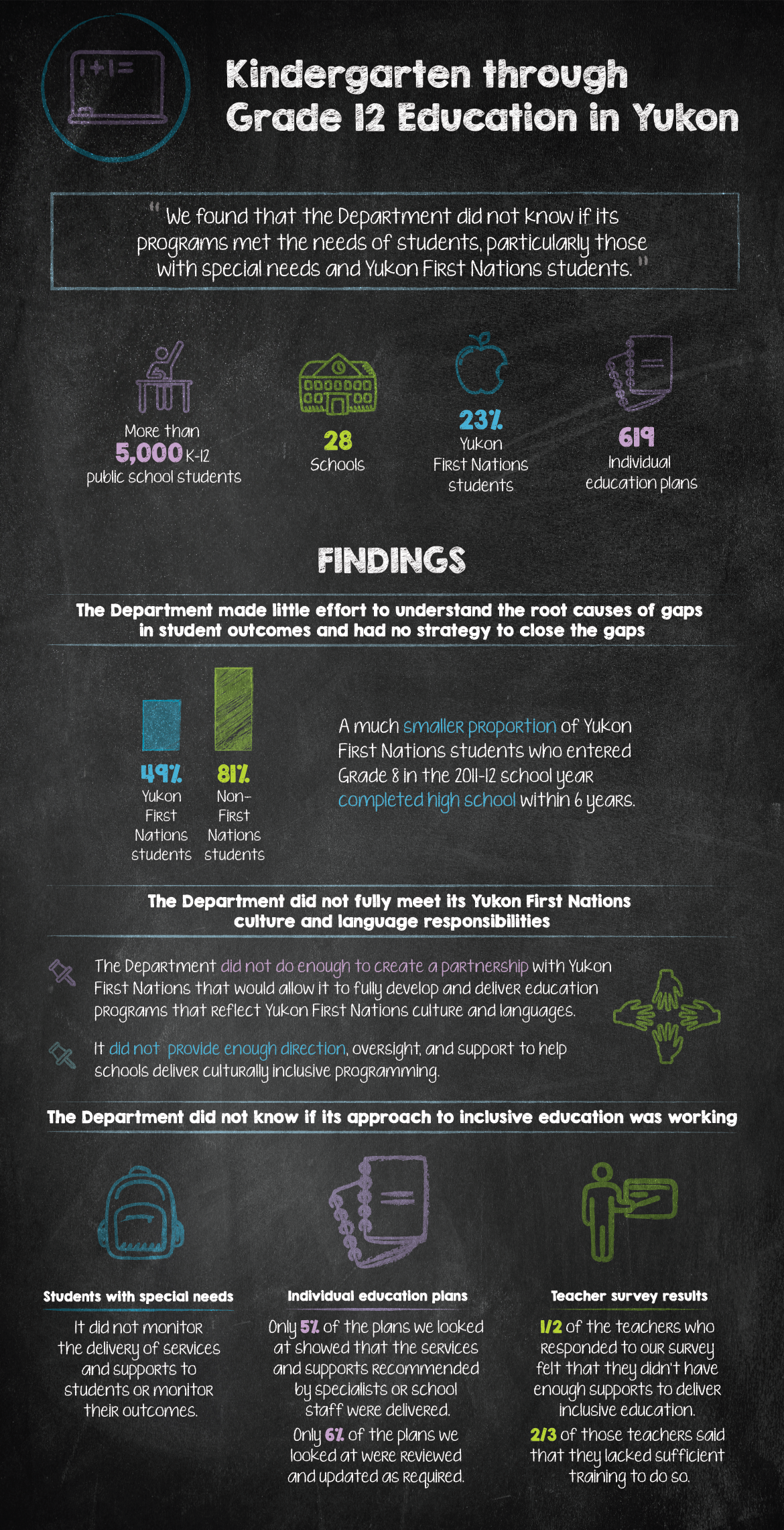Kindergarten through Grade 12 Education in Yukon—Department of Education
At a GlanceKindergarten through Grade 12 Education in Yukon—Department of Education
What we examined (see Focus of the audit)
This audit focused on whether the Department of Education delivered education programs that were inclusive and reflected Yukon First Nations culture and languages, and whether it assessed and addressed gaps in student outcomes.
Why we did this audit
This audit is important because education affects both the individual and Yukon as a whole. Well-educated citizens are more likely to be productive, healthy, and participating members of society and communities. With limited education, an individual faces fewer opportunities for jobs and civic participation. Therefore, it is critical that the education system work well for all students.
Overall message
Overall, we found that the Yukon Department of Education did not know whether its programs met the needs of students, particularly those with special needs and those from Yukon First Nations.
We found that the Department still had not identified the underlying causes of long-standing gaps in student outcomes between First Nations and other Yukon students. These gaps included a lower high school completion rate for First Nations students compared with other students. We had a similar finding in an audit report we published in 2009.
We also found that the Department had not identified the underlying causes of the long-standing gaps in student outcomes between students in rural and urban schools. Until the Department understands the root causes driving these gaps, and the gaps in student outcomes between First Nations and other Yukon students, it has no way of knowing whether it is focusing its time and resources on where they are most needed.
With respect to inclusive education, we found that the Department did not monitor its delivery of services and supports to students who had special needs, nor did it monitor these students’ outcomes.
As a result, the Department did not know whether its approach to inclusive education was working, or whether it needed more focused attention on particular schools, groups, teachers, or subject areas. Half of the teachers who responded to our survey felt that they did not have the supports they needed to deliver inclusive education, and two thirds of those same teachers reported that they lacked sufficient training to do so.
In addition, and of equal importance, the Department has responsibilities and commitments to provide education programs that reflect Yukon First Nations culture and languages. Despite this, we found that the Department did not do enough to create a partnership with Yukon First Nations that would allow it to fully develop and deliver such programs. We also found that the Department did not provide enough direction, oversight, and support to help schools deliver culturally inclusive programming.
What we found about …
Education outcomes for Yukon students
Inclusive education
Yukon First Nations culture and languages
Entity Responses to Recommendations
The audited entity agrees with our recommendations and has responded (see List of Recommendations).
Related Information
| Report of the | Auditor General of Canada |
|---|---|
| Type of product | Performance audit |
| Audited entities |
|
| Completion date | 23 April 2019 |
| Tabling date | 18 June 2019 |
| Related audits |
For more information
Media Relations
Telephone.: 1-888-761-5953
E-mail: infomedia@oag-bvg.gc.ca
